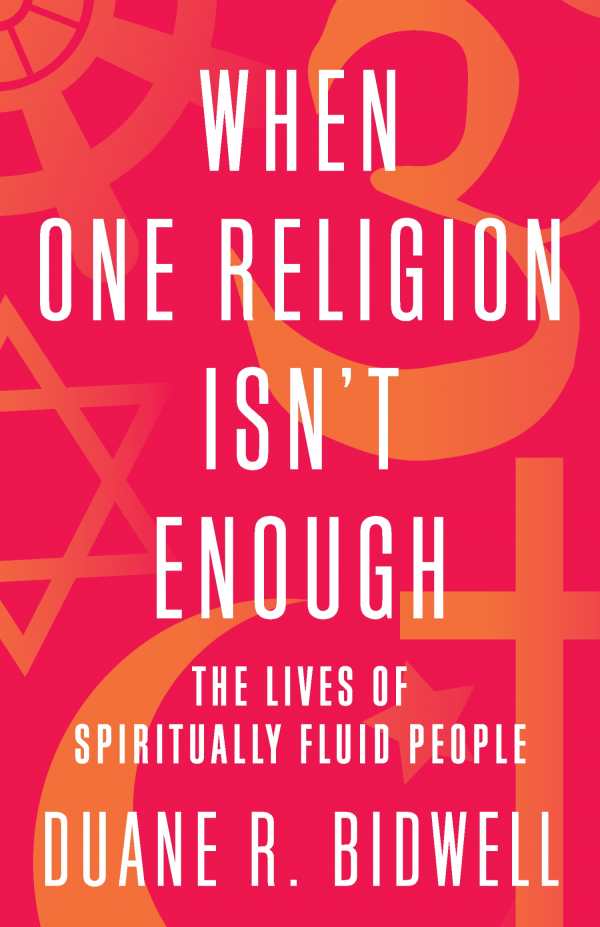When One Religion Isn't Enough
The Lives of Spiritually Fluid People
If you are this, you can’t be that: It’s a ubiquitous assumption in our oversimplified, 140-character-driven world. In When One Religion Isn’t Enough, Duane R. Bidwell explores spiritual fluidity, unpacking our assumption that all identities are demarcated by firm boundaries and challenging the rigid ways that we conceive of ourselves and others.
The book draws on Bidwell’s experiences as a Buddhist Christian, the stories of diverse spiritually fluid individuals, and social, psychological, and theological scholarship in order to open windows into the experience of religious multiplicity. Its greatest strength is its storytelling, through which embracing multiple religions becomes a vivid lived experience. Particularly poignant are two of Bidwell’s experiences of honoring a death as a religiously multiple individual. These stories and others position spiritual fluidity as more pragmatic than radical, despite the inherently countercultural implications of claiming a complex identity.
Chapters read as if they were written to be published separately, and the book becomes repetitive. “A Field Guide to Spiritual Fluidity” elucidates the concepts and experiences of religious multiplicity with remarkable clarity, but it is bogged down by the fact that much of its information has already been shared in previous chapters. Particularly frustrating is the repeated explanation of the challenges that religiously multiple individuals face in a world that privileges singular identity; those living under wider systemic oppressions may find this focus to be a privileged complaint. Still, the book operates with great sensitivity and awareness, addressing the difference between spiritual fluidity and spiritual bypassing or cultural appropriation. The book insists on true engagement over appropriation.
If hashtags, sound bites, and online sounding boxes have you worn down, When One Religion Isn’t Enough is a welcome antidote—inspiring reading for anyone interested in enlivened spirituality or seeking permission to embrace their complexities.
Reviewed by
Jessie Horness
Disclosure: This article is not an endorsement, but a review. The publisher of this book provided free copies of the book to have their book reviewed by a professional reviewer. No fee was paid by the publisher for this review. Foreword Reviews only recommends books that we love. Foreword Magazine, Inc. is disclosing this in accordance with the Federal Trade Commission’s 16 CFR, Part 255.

